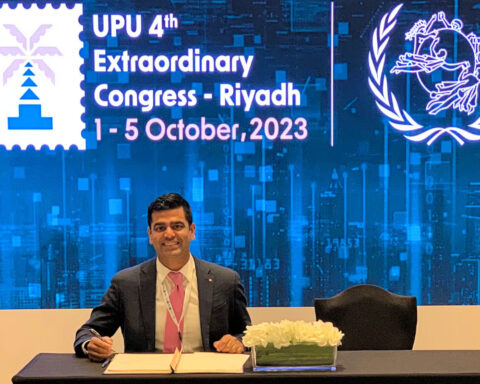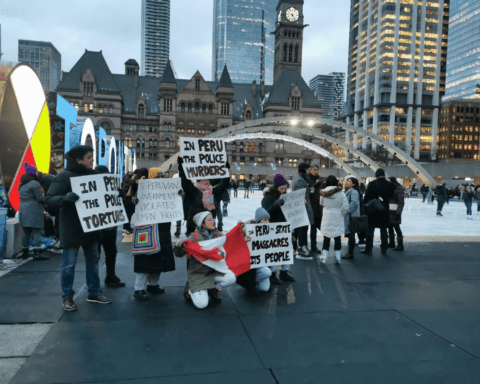When he wrote about a galaxy far, far away (the United States, in the early days of Ronald Reagan’s Presidency), Barack Obama remembered the nights he spent in college dorms with “the more politically active black students.
“The foreign students. The Chicanos. The Marxist professors and structural feminists and punk-rock performance poets” who discussed “Franz [sic] Fanon”.
He may not quite recall how to spell the name of the anti-colonial activist and intellectual, but he knows how to evoke the motley crew of immigrants and minorities that God-fearing American politicians are so often willing to associate with the dark side.
As we gear up for Star Wars Rogue One, many people seem surprised that Obama might be able to find common ground with the “gregarious” Donald Trump, a reality TV star who believes in monetizing pain and suffering. Trump’s approach, however, is not something plucked from the realm of science-fiction.
It is all too familiar to the 44th President of the United States who has graciously hosted celebrities who have achieved renown by monetizing pain and suffering, happily accepted their donations to the Democratic Party and made sure to reward them with medals of freedom and nights to remember at the White House.
We need to talk more, not less, about this pragmatism if we are to make sense of the connections between Trump and Obama and, more broadly, the links between the type of authoritarianism that repels liberals in Canada and the U.S. and the kind of exclusionary behaviour that liberals are wont to ignore.
Aloof President
One of the key tensions for pragmatic liberal nationalists is, unwittingly, displayed in The Bridge, David Remnick’s recent biography of Obama. In it, Remnick insisted that Obama worked hard to obtain the ‘‘emotional connection that marked his performances [on the campaign trail] later on.’’
Then, two pages later, claims that Obama ‘‘clearly felt that the days of nationalism and charismatic racial leadership were outdated and played out.” Such belief that charismatic leadership and emotional appeals should be celebrated when securing a liberal future for the nation (and denounced as part of an intolerant past when used in service to local and transnational identities) may, perhaps, have influenced Obama’s reaction to Edward Said, a worldly intellectual, Palestinian exile and secular humanist.
As we learn from Remnick’s biography, Obama took a course with Said at Columbia University and was unimpressed by one of the leading post-colonial intellectuals to take up Fanon’s clarion call to speak truth to power. Obama-the-student wanted to read Shakespeare rather than get bogged down in post-colonial analysis.
He wanted to figure out how to sway audiences and opinion leaders rather than deconstruct what philosophers and political scientists like to consider western civilization. The President, dismissed as an aloof Professor by his critics, never wanted to turn out like one of those tenured radicals flogging newspapers on the fringes of college towns.
He might move Winston Churchill’s bust out of the Oval Office to make some room for Martin Luther King Jr., but he’d never forget to remind us that he thinks the British imperialist was a great guy.
Those of us who trace the source of our affirmations of emancipation and enlightenment to the struggles of diverse postcolonial peoples for democracy and liberation around the world may find it more productive – morally as well as politically – to pay more attention to the Obama dismissed as a flake.
When we do, we are reminded that Said was inspired by the wise counsel of Hugo of St. Victor, and a secular humanism that believes that “the man who finds his homeland sweet is still a tender beginner; he to whom every soil is as his native one is already strong; but he is perfect to whom the entire world is as a foreign land.”
Trump and Obama find their homeland sweet. They have the power to treat lands across the world as their playgrounds, casinos, and golf courses. It is not clear that they are willing to propose anything that the American people may associate with foreign tastes or values – or at least anything that seems too foreign.
“Second-generation immigrants”
One consequence of all the existential debates about Canadian identity is that Canadian politicians and pundits are often willing and able to view their own land through the eyes of foreigners from the United States and Western Europe.
Yet they remain susceptible to the stentorian tones of the political scientists who uncritically talk about underdevelopment, and the passive aggression of the social scientists who only think to use the second generation immigrant to talk about so-called “visible minorities.”
It is rare to find discussions of overdevelopment in Canada that may help us to work through our attachments to a public sphere convulsed by fear, sickness and nostalgia. It is even rarer to find mainstream journalists using the term “second-generation immigrant” to describe someone racialized as white, particularly if his or her parents were born in the U.S. or the U.K.
For all the column inches devoted to covering an “immigrant from Tanzania” who is running to lead the Conservative Party of Canada, it is difficult to find any articles that hailed David Miller, the former mayor of Toronto who was born in the U.S., or Tony Clement, a Canadian MP born in the U.K., as immigrant candidates.
If we are serious about creating a world with a more human face, we may want to spend more time challenging the unbalanced use of phrases like under-development and second-generation immigrant – whether they pass for common sense in political debates, our media or our universities.
We may wish to heed the insights of courageous intellectuals, some of whom happen to be immigrants and exiles unwilling to give up their critical perspective, intellectual reserve, and moral courage to win awards and popularity.
Daniel McNeil is Associate Professor of History and Migration and Diaspora Studies at Carleton University. His most recent book is Sex and Race in the Black Atlantic. More of his articles on identity, culture and belonging can be found here and here.





